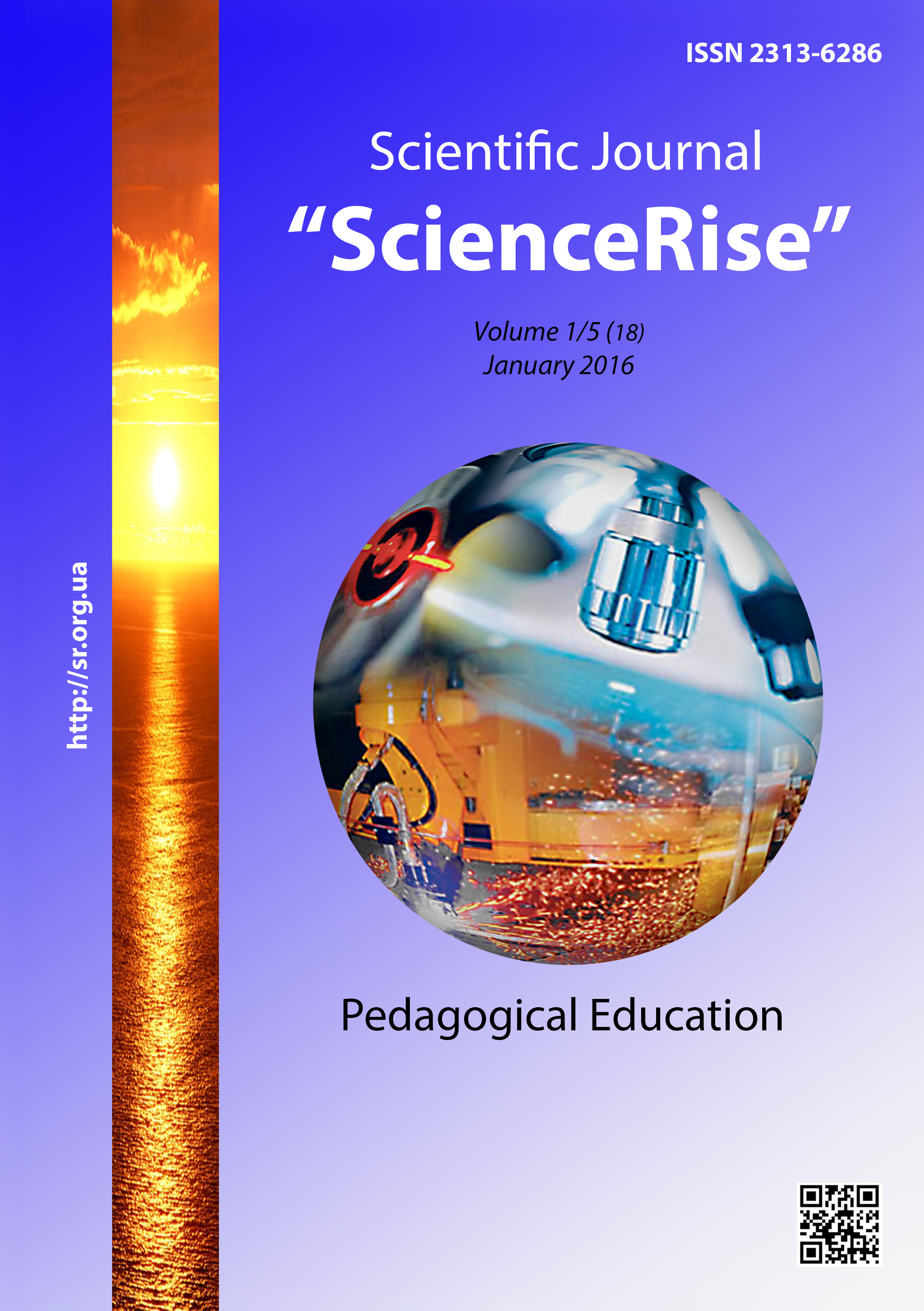Diagnosing the development of literary competence of future language and literature teachers
DOI:
https://doi.org/10.15587/2313-8416.2016.59148Keywords:
literary competence, diagnosing, teacher of Ukrainian language and literature (Ukrainian teacher), literary competence developmentAbstract
Informational and technological dimensions of the society demand new ways of literary phenomena comprehension as every person independently finds, masters and spreads the message in a single informational environment. Therefore, personality self-realization greatly depends on his/her abilities to recognize texts properly, evaluate them objectively and effectively use acquired knowledge, skills and experience under new circumstances. The mentioned qualities are the part of the literary competence, the problem of diagnosing of which this article is devoted to
References
Berns, M. (1990). Context of competense: social and cultural consideration in communicative language teaching. New York, 274.
Kramsch, C. (1986). From Language Proficiency to Interactional Competence. The Modern Language Journal, 70 (4), 366–372. doi: 10.1111/j.1540-4781.1986.tb05291.x
Savignon, S. J. (1997). Communicative Competence: Theory and Classroom Practice. New York: McGraw-Hill, 288.
Meskont, M. Kh., Al'bert, M., Khedoury, F. (1992). Osnovi menedzhmenta. Moscow:Delo LTD, 708.
Raven, J. (1981). The Competencies Needed at Work and in Society. Collected Original Resources in Education, 5 (3).
Martynjuk, O. I., Medvedev, I. N., Pan'kova, S. V., Solov'eva, O. I.; Seleznevoj, N. A., Medvedeva, I. N. (Eds.) (2006). Opyt formirovanija kompetentnostnoj modeli vypusknika pedagogicheskogo vuza kak normy kachestva i bazy ocenki rezul'tatov obrazovanija (na primere fiziko-matematicheskogo fakul'teta). Moscow, 57.
Koval', V. O. (2013). Teoretychni i metodychni zasady formuvannja profesijnoi' kompetentnosti majbutnih uchyteliv-filologiv u vyshhyh pedagogichnyh navchal'nyh zakladah. Uman: PP Zhovtyj O. O., 455.
Kopus', O. A. (2013). Teoretyko-metodychni zasady formuvannja fahovoi' lingvodydaktychnoi' kompetentnosti majbutnih magistriv-filologiv. Lygansk, 43.
Porechenkova, E. A. (2009). Razvitie filologicheskoj kompetencii v sisteme shkola-VUZ i sposoby ejo kontrolja. Moscow, 23.
Balyhina, T. M. (2000). Soderzhanie i struktura professional'noj kompetencii filologa. Metodologicheskie problemy obuchenija russkomu jazyku. Moscow, 386.
Bazyl', L. O. (2015). The development of literary competence of future teachers-philologists: conceptual and theoretical aspects. «ScienceRise», 9/5 (14), 40–47. doi: 10.15587/2313-8416.2015.49162
Orlov, V. F.; I. A. Zjazjun (Ed.) (2003). Profesijne stanovlennja vchyteliv mystec'kyh dyscyplin. Kyiv: Nauk. dumka, 262.
Borodyna, V. A. (2007). Chytatel'skoe razvytye lychnosty: teoretyko-metodologycheskye aspekty. Sankt-Peterburg: Sankt-Peterburgskyj gosudarstvennыj unyversytet kul'tury y yskusstv, 43.
Downloads
Published
Issue
Section
License
Copyright (c) 2016 Людмила Олександрівна Базиль

This work is licensed under a Creative Commons Attribution 4.0 International License.
Our journal abides by the Creative Commons CC BY copyright rights and permissions for open access journals.
Authors, who are published in this journal, agree to the following conditions:
1. The authors reserve the right to authorship of the work and pass the first publication right of this work to the journal under the terms of a Creative Commons CC BY, which allows others to freely distribute the published research with the obligatory reference to the authors of the original work and the first publication of the work in this journal.
2. The authors have the right to conclude separate supplement agreements that relate to non-exclusive work distribution in the form in which it has been published by the journal (for example, to upload the work to the online storage of the journal or publish it as part of a monograph), provided that the reference to the first publication of the work in this journal is included.

